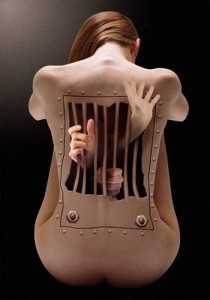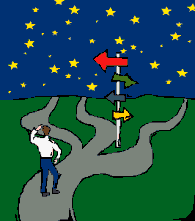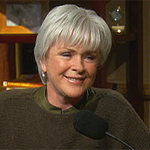
We are hard wired for comfort
When we are at ease our brain cells are bathed in soothing chemicals. Along comes the desire to change and as our brains to develop new synaptic connections those chemicals require greater resources. Our old hardwired cells begin to experience less and less of the soothing juices and begin to experience withdrawal symptoms similar to those experienced by a drug addict. The old hard wired cells begin to feel discomfort. Those discomforts get converted by our brain into words that our conscious mind can understand . . . our egoic self talk. It will begin to lie, cheat and steal to get you to give up the change so it can be in control of normal again.
Every person, place, thing, time, or event in our life will make a more lasting imprint on our brains synaptic connections by its repetitive exposure. We become neurologically wired to an association with every one of these experiences to a specific feeling, and the effect is that they become part of our neural processes and reaffirm who we are.
Changing a person, place, thing, time, or event in our life means that we are breaking the neurochemical juice circuit that we have kept intact. If I ask you to start using a new order of action while brushing your teeth, you may not be able to do it . . . you may do it but feel a great deal of discomfort, or you may do it but quickly abandon the effort. You will most certainly tend to return to the easier, more familiar way.
Imagine, then, what kind of effort it would take if I were to ask you to end a relationship with someone who repeatedly deals blows to your self-esteem and has done so for the last 15 years. If we have grown accustomed to feeling unworthy we want to continue to feel that way because we are in the neurochemical juice habit of being unworthy. It is the routine, familiar, natural, easy way that we have been thinking and feeling about ourselves. Those thoughts are based on memories that we have of our interaction with that person. Those memories have feelings associated with them, and those feelings are neurochemically juiced based. Love then, may indeed be all about chemistry.
What happens when we finally make the choice to stop thinking and feeling shame, anger, or hatred for a single day? This decision is really no different than what happens when we decide to go on a diet. Once our will is engaged in overcoming our thoughts, it’s as if we wake the body from its slumber and it hasn’t had its morning cup of coffee–in this case, its juice fix of shame, for instance.
As a result, the body starts to voice its displeasure to the brain, “What do you mean, you aren’t getting your shame juice? Whose smart idea was this?” What starts out as subtle urges and cravings from the body in the form of an impulsive thought usually–when not carried out–turns into a louder and louder internal monologue that pleads for an immediate action.
The body goes into chaos, as a result of this juice deprivation and its inability to return to its normal state, It does not want to recalibrate itself, because it has grown accustomed to the increasing number of juice units dedicated to shame. Now it feels out of control.
At this point, we will be bombarded with all kinds of urges. The ego chatter in our head will be clamoring to be heard, to make us feel shame. We know that “voice” that we unconsciously respond to every day. That voice, nothing more than old habitual ruts crying out from pain of being deprived of their chemicals as change begins to happen. The chemical reactions being interpreted as words our conscious minds can understand. We listen to it and act as if it is the gospel of our own inner guidance. When we are in the midst of change, it nags and whines the loudest and of course, we rationalize ourselves back to the starting point.
Anytime we are willfully changing an emotional state, we will react the same way to loud and adamant messages from our body. If you respond to these thoughts, you are headed for a release of a lot of chemicals that will reinforce who you have always been.
It is as though we can’t Just eat one bite of the chocolate cake, we eat the whole cake. Have you ever noticed that when you were in an emotional storm and you felt frustrated, you felt angry? And when you were angry, you hated When you hated, you were judgmental, and when you were judgmental, you were jealous. When you were jealous, you became envious, and when you were envious, you became insecure, As you felt insecure, you became unworthy, and when you were unworthy, you felt badly. When you felt badly, you felt guilty. That’s when we eat the whole cake, because like an addict, you could not stop until you totally stimulated the body to a chemically higher level for a greater rush.
As the chemical brain turned on all its emotional peptides and altered your internal chemistry, you activated those related neural networks that house associated memories. You created all the levels of mind that matched each chemical thought with a feeling. The body became an unbridled horse running out of control.
The future has no feelings because we haven’t yet experienced it. Remember that all our episodic memories are stored ultimately as emotions. The past has that emotional component, but the future does not. The future has only the sense of adventure we initially started with, but that easily gets lost in the feelings of our body and the memories of the past. The neuro-synaptic self gets homesick, and when this happens, it wants what it can predict and depend on in the next moment. Dreams of a different future usually get smothered by the feelings connected to the feedback loop of the body. When our identity (which is made of past memories) and the feedback loop of the body reign, we can easily rationalize returning to the familiar.
The old identity that has defined “the self” just wants to return to familiar, routine circumstances, the normal feelings that define it. If we give in to these urges, we are making choices only with our body, never with our mind, and we will never change. Our life will always be a mirror of how we feel and how we are wired neurologically. In order to have any new experiences, we must leave behind the thoughts, memories, and associations of the familiar past. If we are having the same feelings every day, this means we’re not having any new experiences. There must be experiences we have yet to embrace that could produce new emotions.
The physiology of emotions can work both ways. How often, if ever, have you had emotions based not in the familiar feelings of survival, but rather, those somewhat elusive feelings, such as inspiration and the joy of creation? Those heightened moments of gratitude, self-love, bliss, freedom, and awe are within us. They are just too short-lived, And if we can create a cascade of chemicals that cause us to spiral downward into more contagious emotional states and influence the next series of thoughts and feelings, we can also willfully spiral upward, and allow other chemicals to drive other emotional states that provoke thoughts related to those feelings.
In fact, did you ever notice that when you were truly joyful you were in love? And when you were in love you were inspired, and that inspiration led you to be allowing and unconditional with everyone? When you felt truly unconditional, you loved yourself. When you loved yourself, you gained a rich sense of gratitude and a freedom of self-expression without self-judgment. This flood of thoughts and feelings created a wave of more virtuous thoughts and actions, and it seemed so enriching that you did not want it to end. We have in our possession, ready at our disposal, an island of calm in a sea of turbulence. It is evolution’s greatest gift to us.






